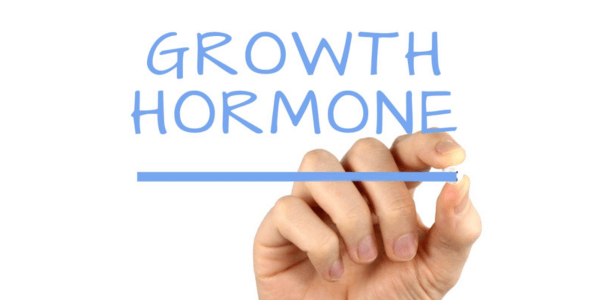In the pursuit of health and vitality, few hormones are as crucial as growth hormone. In this comprehensive guide, we will delve into the intricacies of growth hormone and explore ways to enhance its production, particularly as we age. Unfortunately, aging often leads to a significant decline in this vital hormone. By the time you reach 65, your growth hormone levels may be a staggering 65 percent lower than they should be. The consequences of this deficiency can be profound, affecting everything from muscle growth to fat metabolism and overall well-being.
Demystifying Growth Hormone:
Understanding growth hormone is essential to appreciating its role in your body. Unlike its effects in children, where it primarily influences height, in adults, it is the orchestrator of various critical functions. These include muscle and connective tissue development, collagen production, joint and bone health, and fat metabolism. Notably, the levels of growth hormone in an individual over the age of 60 are comparable to those of a younger person with a growth hormone deficiency. This deficiency often results from issues within the pituitary gland, which is responsible for growth hormone production.
Identifying Signs of Growth Hormone Deficiency:
A deficiency in growth hormone can manifest in several ways. These signs may include difficulty building muscle, cognitive challenges, mood disturbances like depression or anxiety, elevated LDL cholesterol levels, hair loss, and insomnia. To counteract these effects, we must explore natural strategies to enhance growth hormone production.
The Complex Role of Growth Hormone:
Growth hormone’s intricate dance in the body involves multiple organs, hormones, and processes. The pituitary gland, situated in the brain, serves as the primary source of growth hormone. This hormone signal cascades down, initially interacting with the liver. It collaborates with insulin-like growth factor number one (IGF-1) to perform its functions. While growth hormone predominantly supports fat burning, IGF-1 plays a similar role, though less potent. A key distinction is that growth hormone enhances fat burning to a more significant extent than IGF-1.
Natural Ways to Elevate Growth Hormone:
Rather than resorting to synthetic hormone replacement therapy, let’s focus on supporting the pituitary gland’s inherent capacity to produce growth hormone. This approach ensures that we avoid shutting down the gland, preserving its long-term functionality.
Insomnia and the Oxygen Connection:
The significance of restful sleep in maintaining optimal growth hormone levels cannot be overstated. Sleep apnea, characterized by obstructed airways during sleep, significantly impacts growth hormone production. By addressing sleep apnea, you can increase your growth hormone levels naturally. Improve the quality of your sleep environment by ensuring proper oxygen intake and reducing carbon dioxide levels. Adequate ventilation and houseplants can help you achieve a balanced atmosphere.
Hyperglycemia and Balanced Insulin:
Maintaining healthy blood sugar levels is another crucial factor. High blood sugar, often resulting from a carbohydrate-rich diet or diabetes, can suppress growth hormone. Transitioning to a low-carb diet is an effective strategy. Strive to maintain normal insulin levels, as both excess and severe deficiency of insulin can hinder growth hormone production.
Pituitary Glandular Support:
Enhancing the pituitary gland’s function is paramount. Consider incorporating pituitary glandular support, such as Standard Process’s pituitrophin PMG. This approach provides the raw materials necessary for the gland to generate your own growth hormone.
Intermittent Stress and Exercise:
While chronic stress can diminish growth hormone, intermittent stress, such as intense exercise, can stimulate its production. Vigorous workouts, especially sprinting, can elevate growth hormone levels by up to 2,000 percent.
Liver Health Matters:
The health of your liver plays a crucial role in growth hormone regulation. A fatty or inflamed liver can impede growth hormone production. Incorporating liver-supportive remedies, like milk thistle, can have a positive impact.
Balanced Diet for Optimal Growth Hormone:
A diet rich in moderate protein, including sources like red meat, eggs, and fish, is essential. These protein sources contain concentrated amino acids that support growth hormone production. Additionally, red meat is abundant in zinc, an essential element for maintaining healthy growth hormone and testosterone levels.
Harnessing the Power of Heat and Cold:
Exploring temperature extremes, like hot and cold therapy, can significantly boost growth hormone levels. Heat therapy, such as saunas or hot showers, can raise growth hormone levels by up to 1,500 percent. Conversely, cold exposure, like cold showers or immersion in cold water, can stimulate anti-aging mechanisms and promote better sleep, ultimately increasing growth hormone.
Intermittent Fasting: A Growth Hormone Booster:
Intermittent fasting, characterized by consuming the same number of daily calories in fewer meals, is a potent method to elevate growth hormone levels. Implementing this strategy can increase growth hormone by up to 2,000 percent. The key is not to restrict calories but to reduce meal frequency.
Maintaining Muscle on a Keto Diet:
Transitioning to a ketogenic diet can sometimes leave individuals feeling as though their muscles are deflated due to the loss of glycogen stores. To address this issue, ensure you consume sufficient fluids with electrolytes such as potassium and sodium. This hydration is essential for preserving muscle volume while avoiding carb loading, a practice detrimental to insulin sensitivity.
Conclusion:
Unlocking the potential of growth hormone is a transformative journey towards optimal health and vitality. By addressing sleep quality, maintaining blood sugar levels, supporting the pituitary gland, embracing stress in moderation, and following a well-rounded diet, you can naturally enhance growth hormone production. Remember, there’s no need to interfere with your body’s innate mechanisms when you can harness their potential to thrive naturally.
